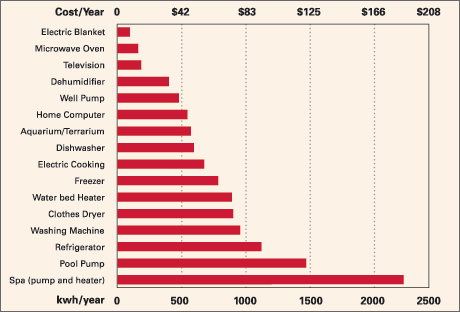Maybe it's me... but skimming through I worry we might be dodging the real question here? The right answer isn't always a short one...
Question: Will a more efficient PSU lower your energy bill? Yes.
Question: Will a more efficient PSU pay itself off quickly, or have a short ROI? Maybe - read on to find out how.
Clarification: Will an oversized PSU save me money? No - This is thinking in a skewed manner!
Alright... here's my take on a complete answer!
If you are of the mindset to save some on your utility bill when you are making a PSU purchase (say if/when your current one dies), an intelligent purchase would involve the understanding that there is an efficiency CURVE associated with any given PSU. As a
*rough and conservative (see following post)* rule of thumb, running any power supply within the top or bottom third of its capacity is going to result in a significant drop in efficiency. Rest un-assured that any touted efficiency figure on the box is there because of the marketing demons, and will only indicate maximum efficiency but not the corresponding power draw.
The most informed way of making a PSU purchase for an existing system is to get one of those cord+plug gadgets you can use to measure power being used, take a measurement of your idling power and a maximum draw (adding some reasonable cushion for upgrades and murphy's law, to ensure stability). Take these figures and do your homework to compare with efficiency curves from well-documented reviews of PSU's. Find a PSU that sits your idling (or "normal") power draw near the top of the unit's curve, and still has the capacity you want to ensure stability and upgradeability.
Further reading:
http://www.anandtech.com/casecoolingpsus/showdoc.aspx?i=3413&p=3
And now to finally answer the question of how to figure out a PSU's ROI. To rephrase: how soon will a new PSU start "saving" me money in the sense of paying for itself?
You will need:
- Your utility rate(s). These will include a Consumption rate (kWh) and potentially a Demand rate (kW) as well. Your utility may additionally have different rates based on the season.
- Your measurements of idle and max power draws for your computer, as described above. Be sure you didn't include your monitor or anything else not powered by your PSU when taking them.
- A general idea of how many hours of the day on average your computer is on, both in "idle" and "max"
- A calculator, unless you're a real bean-counter!
Savings in $/month is: (average power draw worked out between your idle/max measurements and how often you figure you're in either state, *Watts*) x (average hours per day your computer is on, *hrs/day*) x (1/1000, *kW/W) x (30, *days/month*) x (weighted average of your consumption rate(s) through the year, *$/kWh*) x (difference between the new and old efficiencies - use the same weighting you used for 'average power draw' to find efficiencies on the corresponding curves, *unitless*)
Divide that figure into the cost of the new unit and that's how many months it'll take to pay for itself - easy!

Note where I said $ you can of course use any currency. Also note that the demand rates on your utility bill won't play into this if you keep using the same computer.
